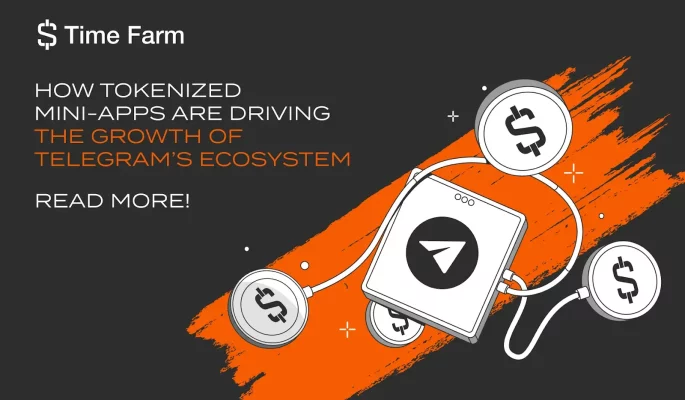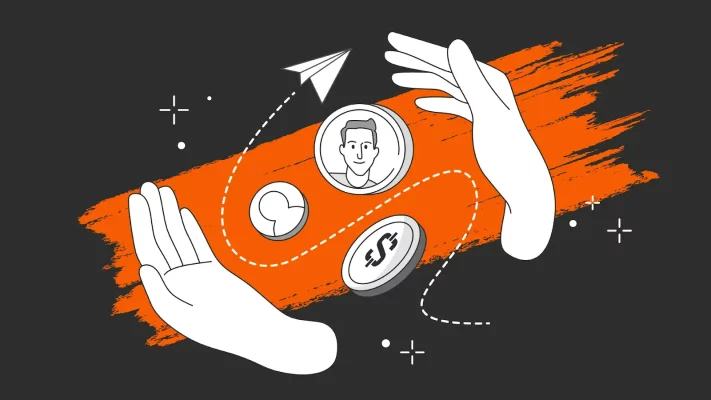Already a hugely popular platform, Telegram is poised to capture a significant section of the fast-growing Web3 market, thanks to the combination of two attractive new features.
Telegram is one of the most widely used social media apps in the world. Its combination of a simple user interface and private messaging has seen its adoption soar to almost a billion users.

The recent launch of mini-apps – web apps that open directly from inside Telegram chats – has seen the platform evolve far beyond a simple messaging app. Companies and developers can now leverage Telegram’s popularity to create vast and thriving communities around games and other applications.
But it is the integration of another feature, Telegram’s native blockchain platform, TON, that has truly revolutionized the user experience. By deploying crypto tokens with real market value within their mini-apps, developers are creating whole new economies – and with them, new avenues for driving user acquisition, engagement, and retention, not to mention revenue generation.
Key to every tokenized mini-app is the “TGE”: token generation event. This is the moment at which a blockchain token is created and distributed to users, and becomes tradable on the open market. The token economics (or “tokenomics”) of the ecosystem then become critical. Well-designed systems can become self-sustaining and deliver lasting value for everyone, while poorly-designed ones risk sliding rapidly into obscurity.
The Telegram “Vacuum”
One of the biggest challenges for tokenomics designers is the relatively closed nature of Telegram’s ecosystem.
Telegram has an enormous user base, and is a powerful platform for engaging communities. There’s a good reason why it’s one of the most widely-used apps in the crypto space, and some of the new tokenized games have achieved dizzyingly fast growth. The top app to date, a game called Hamster Kombat, hit an incredible 300 million users in just five months to August this year.
However, it’s a somewhat siloed ecosystem, with little crossover from other popular social media apps. Perhaps more importantly in the context of building a sustainable economy, there are rarely links to the real world. That, along with some intense competition from similar apps and regulatory scrutiny, saw Hamster Kombat’s user base crash by over a quarter of a billion in September.
Without this crucial connection to the outside world, with its independent services and revenue streams, the success of any Telegram mini-app – and the value of any token integrated with it – threatens to be short-lived.

Bridging The Gap
In fairness, this crossover appeal is something that few crypto apps have managed to achieve, on or off Telegram. However, the slick user experience and easy integrations offered by Telegram mean that mini-apps can legitimately be described as game-changing. The process of transforming conventional “Web2” apps into their blockchain-powered counterparts – without the friction and UX barriers that typically accompany this process – becomes straightforward.
One model for how this might look in practice is provided by TimeFarm, a popular mini-app launched by Australian blockchain recruitment and HR services company Chrono.Tech. Like so many other mini-apps, TimeFarm rewards regular engagement by distributing tokens (called $SECOND), and has attracted an impressive 10 million users since its launch in June.
Unlike others, TimeFarm’s tokenomic model taps into a real-world need for certain services, creating meaningful and organic demand for $SECOND. In the so-called Attention Economy, businesses and individuals compete for users’ views and engagement. When someone shares a social media post, that has value. TimeFarm enables anyone to purchase promotion – including likes, reposts, shares, referrals, channel boosts, and more – by rewarding users in $SECOND.
Each user may have only a tiny impact in terms of visibility, but multiplied across a user base of millions, the aggregate effect can be extremely powerful. That’s an attractive prospect for companies that are desperate for grassroots engagement but have previously had no way to organize their fans and customers at scale due to the inefficiencies of the traditional payments system. This ability to connect buyers with providers of these “microtasks” aligns well with Chrono.Tech’s core business of streamlining global recruitment using blockchain technology.
The Future Of Mini-Apps
The crypto world is a hotbed of experimentation, with new technologies and economic models being tested in the unforgiving arena of the worldwide blockchain user space. Few last the distance, in part because they fail to resonate with the wider market outside the immediate crypto sphere.
Telegram mini-apps have addressed a series of key barriers to blockchain adoption, offering an easy way for organizations to onboard users in their millions while providing frictionless access to web services powered by crypto tokens. Apps like TimeFarm solve one of the final issues, answering a real-world demand in a way that conventional web applications and the traditional payments system cannot. Together, the right platform and the right model promises to drive a new wave of innovation – with tangible benefits for businesses and users alike.
The post How Tokenized Mini-Apps Are Driving The Growth Of Telegram’s Ecosystem appeared first on Coindoo.












 Bengali (Bangladesh) ·
Bengali (Bangladesh) ·  English (United States) ·
English (United States) ·